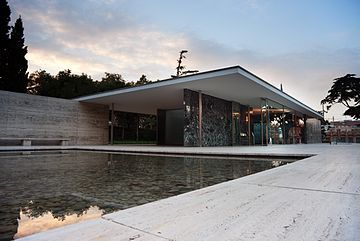Stephen Roney's Blog, page 181
October 14, 2021
Democracy is Coming ... to the USA
It seems to me we are seeing a general collapse of all social systems. We can no longer rely on any institutions.
The parliamentary system, of reasoned debate, used to keep our legislatures functioning reasonably well. Now that civil discourse seems to have completely broken down. It is just a matter of massing votes.
But now, in America, nobody trusts the voting system, either.
The church used to stand as a voice of moral authority against excesses in the secular world. This seems no longer true. For mainstream Protestantism, it has not been true for generations. The last bastion of this, the Vatican, has now been stormed and fallen under Pope Francis.
The court system used to stand as an independent adjudicator to whom we could appeal, based on reason and precedent. Now the courts have become more political than the legislatures. Reason and precedent are largely ignored, and whims are “read into” the law.
The universities used to be semi-monastic in their separation from practical affairs, and able to reflect objectively on them. Now they have become more political than anywhere.
The press used to pride themselves on their independence and lack of respect for any authority. Now they are an arm of the professional establishment. Journalistic standards have been abandoned, and news reports are not reliable.
We used to think science was objective and incorruptible. We could trust the science. That was probably always false, but the COVID crisis has revealed multiple examples of this not being true. “The science” too has become political.
We used to suppose private enterprise was a check against government. That was probably always false; but it is increasingly clear that large corporations and governments work hand in glove.
We used to trust in a professional civil service. The trustworthiness of the government seems cast in dramatically greater doubt by revelations off the “deep state.” They now seem to be lunging for greater power. An example is Merrick Garland’s Justice Department declaring dissatisfied voters at school board meetings “domestic terrorists.”
I and many like me used to think that Silicon Valley and high-tech was a force for freedom; some of us are old enough to remember Apple’s “1984” commercial. Now they have been revealed as Big Brother.
Nothing in the system seems to work any longer as it is supposed to; everything has been subverted by people interested only in power.
I blame postmodernism.
But all of these institutions are also in decline, notably due to technology. Perhaps the rapid loss of power and relevance has provoked a panic reaction, and fear has led to overreach.
If we are seeing the fall of the American Empire, I see no obvious replacement in the wings.
Back in the 90’s, Leonard Cohen recorded his album “The Future.” It offered two competing visions: the title song, which saw chaos coming; and this has proven accurate; and “Democracy is Coming to the USA,” which saw instead an American revival, and a new birth of freedom.
Perhaps he accurately foresaw both.
Perhaps we are witnessing a case of creative destruction. Perhaps as old systems are dying, new systems are about to emerge. And perhaps Cohen is right, that it is still America where the new is most likely to appear.
It's coming to America first,
the cradle of the best and of the worst.
It's here they got the range
and the machinery for change
and it's here they got the spiritual thirst.
I see hope in groups like the Daily Wire, Steven Crowder, and Tim Poole trying to build independent cultural engines. I see hope in Andrew Yang's new political party, proposing a new form of voting. I think we may be on the brink of a new moment of immense creativity.
'Od's Blog: Catholic comments on the passing parade.
Thanksgiving

Canadian Thanksgiving was this week. A little late, and actually pulled from the archives:
Things I am thankful for this Thanksgiving:
I am thankful to have been born Canadian, so that I know enough to celebrate Thanksgiving on the correct date.
I am thankful to have been raised Catholic, so that I didn't have to go through the costly and embarrassing process of having my son circumcised.
I am thankful to have enough food to eat, even if the supermarket is often out of my favourite things and some of it is not always cooked so well.
I am thankful to have been raised speaking English, so that I can make money teaching it instead of having to learn it. Because it really is a pain in the butt.
I am thankful to have gray hair, instead of either of the two obvious alternatives.
I am thankful for all the technology that has appeared over my lifetime. Just not entirely happy at how old it makes me feel.
I am thankful for all the fine writing, music, and art in the world. Even if it seems to be diamonds buried in horse manure.
I am thankful for the companionship of certain people along the path. Especially when they let me share their Skittles.
I am thankful for dogs, which were definitely a good idea.
I am thankful for the sunrise. Just don't make me get up and see it.
I'd like to be thankful for my wife and kids, but I'm afraid it might give them swelled heads.
October 13, 2021
Evangelizing for Social Justice in Barbados

Friend Xerxes laments that social justice is a hard sell to a black congregation in Barbados. He believes it is because “Evangelicals” are concerned only with individual salvation, and not with social issues.
But isn’t it odd to find a poor black congregation unreceptive?
After all, “social justice” is supposed to be largely for the benefit of blacks. It also seems probable that a black congregation in Barbados is poor; Barbadian GDP per capita is only $15,000 US. Social justice is supposed to be for the poor.
Nor is social engagement alien to Evangelicals. The Salvation Army is evangelical. From their mission statement: "The Salvation Army, an international movement, is an evangelical part of the universal Christian church." Evangelicals give more than their fellow citizens to charity and volunteer more at food banks, soup kitchens, and the like. Perhaps next to the Salvation Army, the biggest presence in helping the poor in downtown Toronto is the Scott Mission, which is evangelical. They run a food bank, homeless shelter, children, youth, and camp ministry. George W. Bush, an evangelical, pushed hard for "faith-based initiatives," exploiting the eager participation of evangelicals in the government's own social programs.
The problem is with “social justice.” Which is manifestly something other than charity, in their understanding. Social justice is not something done for the poor or the working class. When left-wing sources criticize movements like Trumpism, the PPC, Brexit, or France’s National Rally, as “populist,” they are acknowledging as much: the uneducated common rabble, the poor, are the enemy. If poor blacks identify themselves by class, they are likely to be hostile to the left and its “social justice.” If they identify themselves instead by race, they may be for it. This, unfortunately, gives the left an incentive to divide people by race, and this again becomes a stumbling block for sincere Christians.
Nor is there any clear connection between what is currently called “social justice” and the Christian virtue of charity. Charity is giving to others in need. Social justice is demanding that others do it instead of you. And social justice seems more to be about power and coercion. It looks like people who consider themselves better than others trying to control others’ lives, including the lives of the poor, in the process validating the power structure and fixing it in place.
Are the social elites who push the “social justice agenda” nevertheless well-intentioned?
I wonder. They call the common working people “rednecks”—a pejorative term those who work outside for a living. Hillary Clinton called the working poor “deplorables.” Obama called them “bitter clingers.” One can hear the classism, the sense of privilege, and the contempt.
October 12, 2021
Men of Science
 Scienceman
SciencemanDr. Fauci likes to say “I am a man of science.” He has also said “when they attack me, they are not attacking me, they are attacking science.”
This is unsettling. He is wrapping himself in science as though it bestows sanctity, as though it makes him a higher form of being. And he is evoking science as though it is a body of incontrovertible truths. The closest parallel I can come up with is “I am a man of the cloth,” among ministers. But it would be considered bad form to say that of yourself, and it actually does not carry as much weight. You will say, so what? What denomination? Nobody gets away with much by it.
One does not hear anyone say “I am a man of double-entry bookkeeping,” or “I am a man of actuarial tables.” Yet all are on the same intellectual plane as science. They are all no more nor less than tools.
It is an indication of how badly we have fallen into “scientism,” the worship of science as our religion and our God.
Besides the idolatry, we need to realize the obvious truth that having training in the scientific method does not make one a moral person. Anyone evokes “science,” and we act as though this is proof of good moral character. And of a truth beyond challenge—the very opposite of the scientific method. Charlatans and scoundrels—not here referring specifically to Dr. Fauci—can make good use of this naïveté. Freud, Hitler, and Marx are obvious examples.
'Od's Blog: Catholic comments on the passing parade.
October 11, 2021
Do Facebook's Algorithms Pose a Public Threat?

Friend Xerxes is concerned about people falling into self-confirming information silos on the Internet, because of Facebook’s algorithms. The result, he fears, is that bizarre conspiracy theories are spread widely without ever being contradicted; and violence may result. He speaks of “A rising tide of people in this country [who] apparently believe … that they are called overthrow the established powers-that-be. By any means. Including physical insurrection.”
There does seem to be a general decline in civil discourse. Let’s assume the theory is true.
Logically, people falling into limited information silos is equally likely on either the left or the right—or, for that matter, in the middle. At first glance, any of these is equally troublesome.
But if we are talking of the potential for overthrowing the establishment and for violence, the bigger problem is on the left. “The right” is, by and large, conservative, and conservative means wanting to maintain traditions. Accordingly, the right is the one group least likely to attempt any kind of insurrection or radical change of government or how we are governed. They might want to throw the current rascals out, but it would be by established, constitutional means. If our form of government had changed recently, this might not be so—the right might then want to go back to an earlier constitution—but both the US and Canada have been stable for unusually long periods of time. There is not a constituency in the US for a return to the monarchy, or in Canada for a return to direct rule from London. Currently, as Xerxes himself notes, no visible group on the right wants an insurrection to change our system of government.
This is not true of the left. The left is by definition seeking change. Black Lives Matter wants a radical change in a society it calls “systemically racist.” Antifa does too; the advocates of critical race theory do. In my riding, last election, the ballot included candidates from both the Communist and the Marxist-Leninist parties. A bit quaint in 2021, but these leftist groups too, in principle, want to radically change our system of government, by violence if necessary.
So if the issue is social instability, to “overthrow the established powers,” the practical argument is entirely for breaking up silos on the left.
You might object that fascists are a counter-example, a rightist group that advocates overturning the establishment and violent revolution. But fascists are deader than Marley’s ghost. Unlike Communists, they do not appear on any ballots anywhere. And there is nothing actually placing them on the right. Historically, they are a Marxist movement, “right-wing” only in comparison to the Leninists. Others have called them the “radical centre.” Historically, the conservatives were their chief opposition, and they have many more views in common with the contemporary North American left than the contemporary North American right. Arguably, the present government of China is fascist.
The specific conspiracy theories Xerxes cites hearing in his daily rounds sound as though they come from left-wing sources. Something about the Queen, Hilary Clinton and Joe Biden being clones; that sounds like a garbled version of David Icke’s thesis that they and other world leaders are aliens. Icke is New Age, and was the national spokesman for the UK’s Green Party. Xerxes’s barber is against cops and immigrants. Being against cops is a position lately promoted aggressively by the left. Neither left nor right is against immigrants currently. This was historically more a left-wing position, as a supposed threat to labour; the current right wants to stop illegal immigration. Xerxes cited the anti-vaxxers. The anti-vaccine movement began on the left, and was primarily leftist as recently as a year ago. The right is anti-vaccine mandates currently, but only over the last few months.
At a minimum, you are not going to stop any of these movements by breaking open the right-wing information silo. If they are not exclusively on the left, they are found in more than one silo.
To be fair, there are conspiracy theories on the right: QAnon, Pizzagate. There are just a lot more on the left, and on the left they are more generally accepted: the idea that rich capitalists control everything, for example, or corporations, or “Big Oil,” or “Big Pharma,” or the “whites,” or the “patriarchy.”
The left is also more inclined to violence. Some PPC local official threw gravel at Justin Trudeau in the recent Canadian election; violence at a low level. Some people trespassed last January 6 in the US Capitol building. Nobody told them to do it, and their actions were immediately condemned on the right. Compare Maxine Waters, elected Democrat, calling on her supporters to “get more active, get more confrontational.” Compare Antifa, calling for physical assaults on “Fascists”—meaning, in reality, anyone they disagree with. Compare Black Lives Matter rioting, looting, burning, and killing last year; and Kamala Harris endorsing their actions, then bailing out those arrested. The PPC official, by contrast, was immediately expelled from his position.
So should we step in and shut down left-wing news outlets? This strikes me as exactly the wrong step. Conspiracy theories thrive in the absence of full information, as the “information silos” thesis itself suggests. Rumours take over. Reducing access to any news source therefore makes conspiracy theories more likely, and plausible. Perhaps the Facebook algorithm should be adjusted. While it is obviously desirable in general to try to predict what the audience wants to see—that is the whole point of a search engine--political slants might be omitted from the equation.
And if you stop and think, at worst, we are in a better situation than before the Internet. All of us were then trapped in the same information silo, without any choice, a silo determined by the fairness doctrine, the need for media corporations to appeal to the largest audience, and the relatively small number of people who work in the mainstream media. A smaller number than we perhaps realize: due to time pressures, social pressures within the profession, intellectual timidity, and a fear of taking risks, most media took their cue on any new story or controversy from a handful of outlets.
This made it easy to manipulate the news, and popular opinion. Conspiracies were more possible, and conspiracy theories more plausible.
Whether the algorithms automatically direct us there or not, we now have full access to any information source we choose. We can now, for the first time, hear all sides, not just some arbitrarily selected one or two, and make more informed decisions.
In sum, if civil society is becoming less civil, it is not because of the Internet.
'Od's Blog: Catholic comments on the passing parade.
October 10, 2021
For Comics Fans
The Real Argument for Atheism
The primary atheist argument for the non-existence of God seems to be the problem of evil. If there is a God, how can innocent children suffer? How can children in Africa suffer from parasitical worms in their eye? This seems the whole argument for Christopher Hitchens. If God existed, Hitchens objects, he sounds like a North Korean dictator.
Yet something here makes no sense. There are a dozen good logical arguments—philosophical proofs-- that God does exist. This one counter-argument does not suggest that he does not exist. Rather, it suggests he is not on our side. “Like flies to idle children are we to the gods; they kill us for their sport.” So why do the atheists instead jump to the non sequitur conclusion that he does not exist?
It is not that they are angry at God for evil, either. It makes no sense, after all, to be angry at someone for not existing. Yet they sound angry.
It seems to me that their real problem must be fear. Anger is the natural mask for fear: “fight or flight.” Of what? Of God punishing them. If God exists, and he is a moral being, they will eventually be judged. An evil or malignant God may not judge on moral grounds—but he too will punish, probably even more so. The safe and reassuring assumption is that God does not exist.
Then they project their own sense of having sinned on God, portraying this God, even though non-existent, as evil. This is scapegoating. If there is evil in the world, if evil is natural, if God is evil, and everyone is evil, I have the moral right to do what I want. Then they project the claim that those who believe in God are indulging in “wishful thinking,” while they are the hard-headed realists—an act of misdirection. It reveals their fear of hell. Once you start to lie, you begin to reliably say the opposite of the truth.
It is all classic denial. It all suggests the correctness of the Biblical assumption that atheism is not an innocent intellectual error, but a moral failing. And it means that the level of atheism in our or any society is some measure of how morally depraved it might be. Although wicked people can claim to be religious, the level to which being openly atheist is socially acceptable is a reflection on society as a whole and its values.
But that is rather good news, for North America. In Canada, the current figure declaring themselves atheist is only 8%. In the US, it is 3.1%. In Britain, various surveys put the proportion at 25% or higher.
'Od's Blog: Catholic comments on the passing parade.
October 9, 2021
Child Abuse in France
\
 Why have we heard so little?
Why have we heard so little?Last week a report was released estimating that 216,000 children have been victims of sexual abuse by Catholic priests in France since 1950. This is revolting, of course, but we are sadly getting used to such reports.
It is worth noting, however, that we have no control. It is only the Catholic Church, it seems, that is ever investigated for this. We do not know if this is more or less than the level of abuse in the home, in the schools, in other denominations, and so forth.
If we really cared about children, we would be looking at all of these. The most shocking thing is that we are not. Until we do, we are all complicit.
'Od's Blog: Catholic comments on the passing parade.
October 8, 2021
Teachers' Day

October 5 was International Teachers’ Day, a day not generally observed in Canada. It ought to be. There is no more important job than that of teacher. Confucius, the most influential thinker who ever lived, never held any higher position. Neither did Socrates or Aristotle; and who is more influential in Western civilization than they? Yet we know of them only from their students’ reports and lecture notes.
Actually, there is a more influential figure over the West than Socrates or Aristotle: Jesus. His followers, too, addressed him as “Rebbe,” “teacher.” We know him, too, only from their lecture notes.
I expect that most readers can, as I can, remember some special teacher in their past who influenced them deeply, who is responsible in some important way for what they later became. Mr. More in grade 6, who confirmed my love of poetry; of A. Pat Smith in grade 13, who drove me into literature; of Professor John Cooke at Queen’s, who lured me into comparative religion; of Paul Nowack at Ryerson, who found me too old to have had the influence he might have had, but who taught me again the value of storytelling.
Since being a teacher is about as glorious a job as anyone could have, is seems odd that Canada has no “teachers’ day,” and that Canadian teachers often prefer to call themselves “educators.” As though reaching for some euphemism. Teaching has fallen into disrepute. While we may disagree on the problem and the remedy, we seem all agreed, including teachers, that there is something very wrong with the schools.
This is the more alarming, because it is improbable. We all spontaneously want to learn; we are programmed for it. We all remember with respect approaching awe the good teachers we have had. It must take some doing to poison that well.
Moreover, a culture or civilization that fails to produce great teachers is a culture or civilization that is dying. This is the essential task of a culture: to pass on the accumulated wisdom generation to generation.
The spectacular success of Jordan Peterson shows how deep the hunger is for good teachers. That is what Peterson is: he does not have an especially good record as a researcher. He is a teacher The world is responding..
What have we done to so badly mess things up?
'Od's Blog: Catholic comments on the passing parade.
October 7, 2021
2020, But Almost Invisible
 Barcelona Pavilion
Barcelona PavilionThat’s not a typo; I thought it was at first. Expo 2020, held in Dubai, was postponed one year, like the Olympics, due to COVID.
I feel sorry for Dubai over this. Few I speak to seem aware of the fair, and I realized it existed only after it opened.
Their overall strategy is to turn Dubai into a tourism destination, before the oil-related revenue one day runs out. It seems a sensible idea. Dubai is reasonably well-located for a midwinter getaway for Northern Europe. It has miles past reckoning of natural beaches. Hosting a World’s Fair should have introduced the destination to a lot of first-time tourists. Now the expense is likely to be largely wasted, as travel is a complicated matter in the pandemic.
I suspect the UAE government also sunk more money into this than is obvious. Apparently the fair has 192 countries participating. The United Nations has only 193 members. Expo 67, considered the most successful world’s fair of the 20th century, had only 62 participants. To get everybody, I presume Dubai must be subsidizing pavilions for at least some nations.
There is a common view that the days of international expositions have passed. And there is a logic to that. With exponentially improved communications, is it really still necessary to bring things and people together in one physical place?
I think that is wrong. The modern Olympics, originally a sideshow held at World’s Fairs, has endured and prospered, even though it has little practical value to anyone. I think World’s Fairs, in comparison, still serve an important purpose. You cannot really experience architecture or some technology at a distance. Moreover, experimental architecture or engineering installations probably need to be subsidized to be practical. A World’s Fair does that: an Olympics of the mind.
World’s Fairs have done other things, no doubt: showcasing art, or culture, or new consumer products, or the manufactures of a given nation, in promotion of trade. Yet the great value has always been in introducing new architecture or engineering installations. The Crystal Palace, the architectural marvel of the first-ever World’s Fair, in London, 1851, eventually burned down. But not before inspiring dozens of similar structures all over the world. The Paris Exposition of 1878 introduced outdoor arc lighting, perhaps cementing Paris’s image as the “city of light.” Not to mention the Statue of Liberty. The Paris Exposition of 1889 left the Eiffel Tower as a display of engineering prowess. Chicago’s 1893 fair gave us the Ferris wheel. Paris, 1900, was the first installation of the escalator. Milan, 1906, introduced the tram, the electrified streetcar. Barcelona 1929 showcased the Barcelona pavilion, first cannot shot of the new modernist style in architecture. Expo 67 was most memorable for the US pavilion’s geodesic dome, much imitated since; for Moshe Safdie’s Habitat ’67, a noble if only partly-successful effort at affordable housing; for the Czech pavilion’s kino-automat, an experiment in interactive media which looks now like the precursor to current social media.

I think it is unarguable that World’s Fairs have led to significant human progress; something that can hardly be said of the Olympics. For a time, they seemed to lose their way; following Expo 67, for some years, all exhibitors could think to do was show a film using some innovative screen—a cheap and easy option. Interesting, but not something easily adapted for use outside exhibitions.
I get a sense Expo 2020 will be more than that. In the end, it may be the most memorable thing about 2020-2021.



